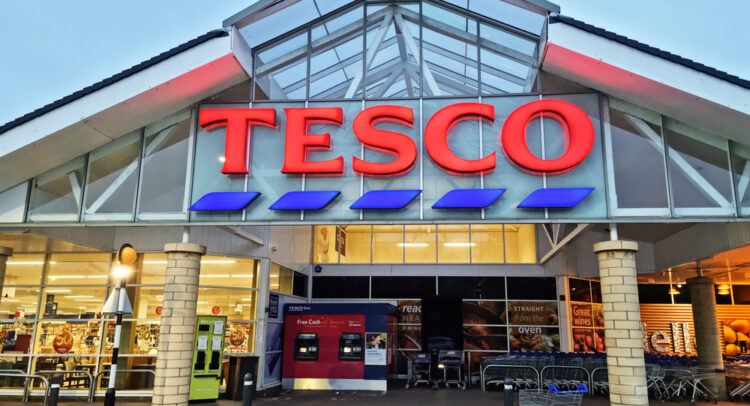The outlook for the UK high street is dimming, with the latest figures from the British Retail Consortium (BRC) revealing weakening consumer confidence that has begun to weigh on retail share prices. On Tuesday, Tesco (GB:TSCO), a major FTSE 100 stock, saw its shares decline by 1.8% following the BRC’s report. The “golden quarter,” the crucial three-month period ending in December, failed to meet expectations, and the BRC issued warnings about potential job losses.
Stay Ahead of the Market:
- Discover outperforming stocks and invest smarter with Top Smart Score Stocks
- Filter, analyze, and streamline your search for investment opportunities using Tipranks' Stock Screener
Retailers Grapple with Rising Costs
The BRC’s bleak outlook comes as the pressure on UK retailers is intensifying. High street bellwether Next (GB:NXT) also announced a 1% increase in prices this year to offset a £67 million rise in wage costs, driven by tax changes announced in the government’s autumn Budget. Furthermore, the retailer warned that growth in UK sales could slow as these tax increases ripple through the economy, impacting prices and the job market.
Retails Stocks Could Face a Tricky Year Ahead
Meanwhile, Helen Dickinson, CEO at the British Retail Consortium commented, “Following a challenging year marked by weak consumer confidence and difficult economic conditions, the crucial ‘golden quarter’ failed to give 2024 the send-off retailers were hoping for. Non-food was particularly hard-hit, with sales contracting from the previous year.”
Looking ahead, the BRC forecasts that retail sales growth in 2025 will average just 1.2%, trailing behind expected shop price inflation of 1.8%. This signals declining volumes, while rising costs, resulting from increased National Insurance Contributions, will add £7 billion in additional burdens for retailers.
Food Retailers Like TSCO Could Be Insulated as Prices Rise
Amid these headwinds, food retailers like Tesco and Sainsbury’s (GB:SBRY) showed resilience. While UK retail sales grew modestly by 0.7% in 2024, food sales rose 3.3%, offsetting a 1.5% decline in non-food categories. Furthermore, citing data from Kantar, Tesco led the market with a 5% increase in sales and now has a market share of 28.5%, while Sainsbury’s hit its highest market share since 2019 at 16%.
Meanwhile, grocery inflation reached 3.7% in December, its highest level since March, citing Kantar data. Rising inflation could provide a cushion for large-scale food retailers with strong buying power, helping them navigate an otherwise challenging retail landscape.
Is Tesco a Buy, Sell or Hold?
The analyst consensus on TSCO is a Moderate Buy based on 10 Buys, two Holds and one Sell. The average TSCO price target of 397.25p with a high forecast of 445.00p and a low forecast of 270.00p. The average price target represents a 7.77% change from the last price of 368.80p. Meanwhile, shares of TSCO have gone up by more than 20% over the past year.




















